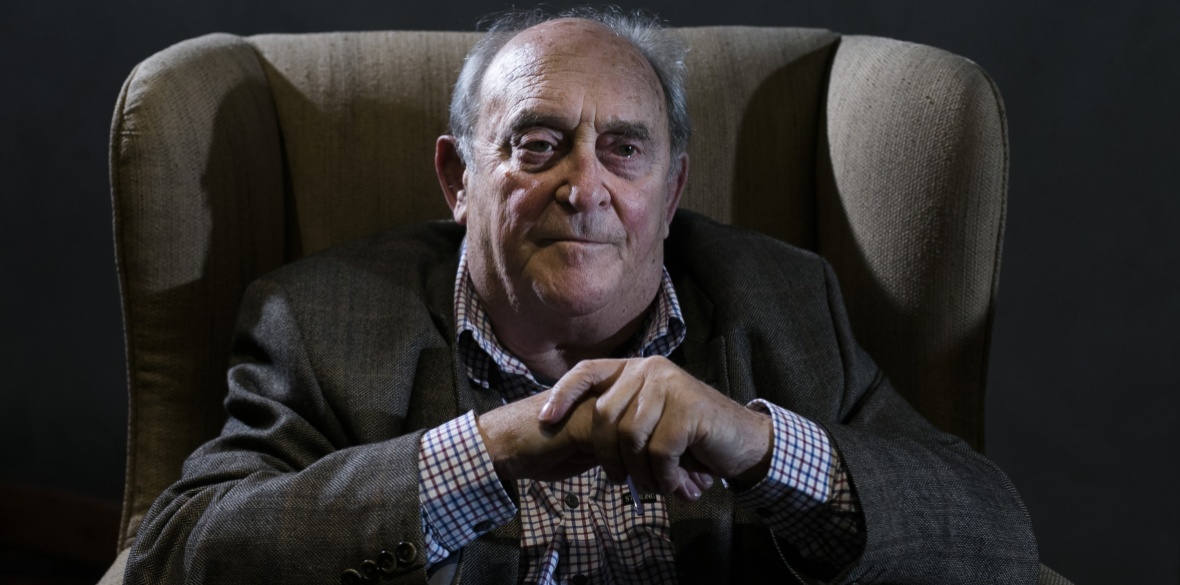This is the last article you can read this month
You can read more article this month
You can read more articles this month
Sorry your limit is up for this month
Reset on:
Please help support the Morning Star by subscribing here
TRIBUTES poured in for veteran South African anti-apartheid activist and communist Denis Goldberg after he died peacefully at his Cape Town home on Wednesday, aged 87.
Mr Goldberg, who stood trial alongside Nelson Mandela, passed away just before midnight, his family confirmed, adding that he “never stopped believing in his ideals.”
The South African Communist Party (SACP) said in a statement: “A giant has fallen. A revolutionary has breathed his last breath,” offering condolences to his family.
It said it was “up to us to pick up his spear” and “ensure that the socialist society that he lived and fought for becomes a reality.”
Mr Goldberg was arrested in 1963 after a police raid on activists from the African National Congress (ANC), a movement of which he was a lifelong supporter.
He stood trial alongside Nelson Mandela and several others when they were charged with armed insurrection against white-minority rule under South Africa’s apartheid system.
The pair were convicted of sabotage and sentenced to life imprisonment. Mr Goldberg served 22 years before being released in 1985.
He was born in Cape Town in 1933 to Jewish communists who relocated from Britain. It was as a child that he became politically aware, with fascism on the rise in Europe.
“I understood that what was happening in South Africa with its racism was like the racism in nazi Germany in Europe that we were supposed to be fighting against,” he said.
His politics and internationalism led him to join the SACP and he was an active member of the party’s underground activities in the 1950s, distributing pamphlets in Cape Town under oppressive conditions.
Mr Goldberg and his mother were detained for four months during the State of Emergency in 1960, but he was not deterred from revolutionary politics.
The following year he co-founded uMkhonto we Sizwe (MK), the armed wing of the ANC, alongside Nelson Mandela. It was this that led to his 1963 arrest alongside Mr Mandela, when they were charged with organising a campaign of “violent revolution.”
He returned to London on his release in 1985, continuing to act as a spokesman for the ANC, representing the party on the UN Anti-Apartheid Committee.
After the fall of apartheid and the 1994 election which ended white-minority rule, he once again returned to South Africa.
He became a special advisor to then government minister Ronnie Kasrils, who described him as “an outstanding, remarkable South African and human being.”











